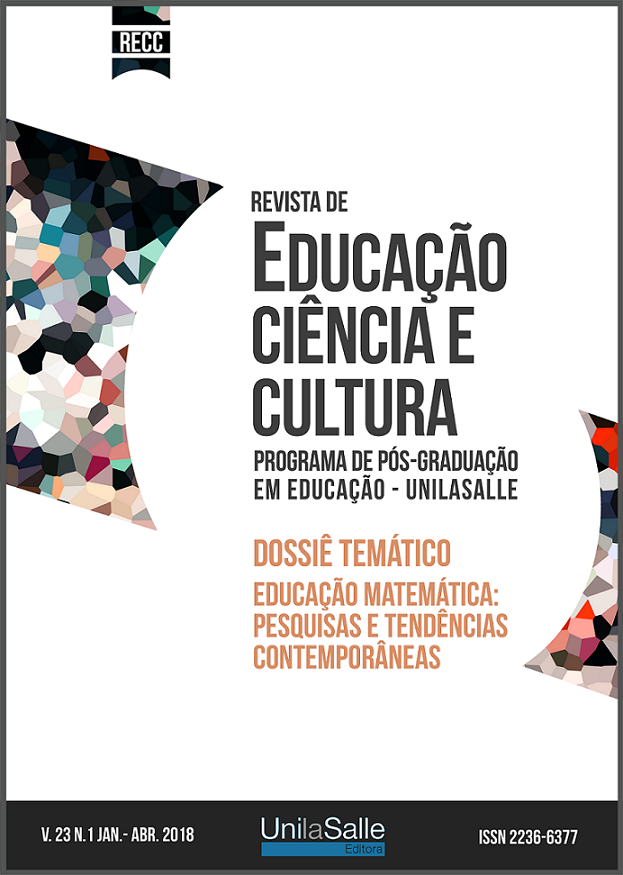Training for the teaching profession specialized in inclusive education: what educators say
DOI:
https://doi.org/10.18316/recc.v23i1.4641Keywords:
Teacher Education, Action Research, Inclusive Education, Basic Education.Abstract
This work is part of a research entitled continuing teacher education: collaborative action research in contexts of inclusive educational practices (2nd Stage / 2013/2016.), Funded by the National Council for Scientific and Technological Development (CNPq). In this paper we explore one of the stages of the action research experience of process where it held a series of interviews with educators, seeking to better understand their needs and aspirations in the field of inclusive education. These educators are part of a center specialized educational services linked to municipal public schools. To realize our purpose in this paper we set the following question: What is the importance of specific training for specialized care in the context of inclusive education? As theoretical support consider the study Imbernon (2010), Nóvoa (2007; 2009) and Perrenoud (1997).For the data treatment we used the contributions of content analysis (BARDIN, 2011). There is a gap between the testimony offered by educators. On the one hand it is argued the need for specific training, including medical knowledge about the syndromes and difficulties, which according to educators allows for better educational performance. This training, in view of educators, is not offered, so the other side is a second statement in which specific training is conducted in the everyday to own relationships, or are themselves educators who will specialize from their searches and routine actions. Opens a field of analysis to carry out reflection on the place of specific training.
Downloads
Published
Issue
Section
License
Authors must submit their manuscripts to be published in this journal agree with the following terms:Authors maintain the copy rights and concede to the journal the right of first publication, with the paper simultaneously licensed under the License Creative Commons attribution that permits the sharing of the paper with recognition of authorship and initial publication in this journal.
Since the articles are presented in this journal of public access, they are of free use, with their own attributions for educational and non-commercial purposes.
The Periodic Journal of Education, Science and Culture in http://www.revistas.unilasalle.edu.br/index.php/Educacao was licensed with a Creative Commons - Attribution - Noncommercial 3.0 Not Adapted.


